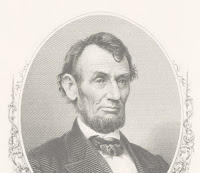WEEKS
Let’s start with three basic truths
about the 2020 presidential election two weeks from the day the vote
counting starts (millions are voting early and have been for some time):
1.
Democratic
nominee Joe Biden enjoys a solid lead in the polls;
2.
incumbent
Republican President Donald Trump could win, but his path seemingly narrows every day; and
3.
the
factors that swung the 2016 election to Trump have not surfaced so far.
This is the universe in which both nervous Democrats and hopeful
Republicans live as the race comes down the home stretch.
Biden’s Lead
As of October 20, two weeks before election day:
*Biden leads in fivethirtyeight.com’s national polling average by more
than ten points and just under nine in the Real Clear Politics polling average.
*In the three decisive battleground states Trump won in 2016
by a total of 77,000 votes, Biden leads by five points or more in the 538 and
RCP polling averages for Pennsylvania, by six in Wisconsin, and by seven in
Michigan.
*Biden holds narrower leads in other battleground states
Trump won in 2016 including Georgia, Florida, North Carolina, and Arizona.
*Three states – Iowa, Texas, and Ohio – are essentially tied.
Trump won them all last time and he likely has no path to a second term without
at least two of them.
Should Biden hold his leads in Pennsylvania, Michigan, and
Wisconsin and win the states Hillary Clinton carried four years ago, he need not
win any of the toss up states (Iowa, Texas, Ohio) or other battleground states.
Right now, Trump doesn’t lead in any state Clinton won four years ago.
Trump Could Still Win
Nate Silver’s 538 forecast, based on computer
modeling using polls, gives Trump a 12%
chance of winning. On
the eve of the election in 2016, with Clinton leading in the polls, that
forecast gave Trump a 35% chance of winning. Trump still enjoys a structural
advantage in the electoral college because of small western and
southern states he seemingly can’t lose. If he could flip a few states where
Biden now leads narrowly, he possibly could pair those with states like Arkansas,
Wyoming, and the Dakotas where he’s likely to win by more than 15 points and
perhaps cobble together an electoral college majority.
Trump also draws encouragement from the idea of the so-called
hidden Trump vote. Supposedly a sizeable number of Trump supporters don’t
reveal themselves to pollsters, but will turn out on election day and put him
back in the White House.
Evidence that a hidden Trump vote exists is tenuous at best
and results from myths that have sprung up about the 2016 election, especially
the idea that the polls got
everything wrong. In truth, the 2016 national
polls forecast the popular vote accurately. Clinton held a three-point lead
going into election day and won by about 2.3 points, well within the margin of
error for any poll.
As Clinton pointed out in her book What Happened, not many polls were in the field in
the final days
of the campaign in states like Wisconsin. They didn’t measure there the drop in
her support, seen elsewhere and likely caused by FBI Director James Comey’s reopening of the e-mail investigation.
Biden’s lead has remained stable. It has endured since the
spring and has grown, in part, because of Trump’s abysmal handling of the
pandemic. Relying on a hidden vote seems like a fantasy now, but only counting
the ballots can tell us if such a thing exists.
Maybe the Calvary Isn’t
Coming
Whatever Clinton’s complicity in her
loss, and we’ve been unsparing in our criticism of her,
the things that did her
in haven’t happened to Biden to this point. First, there’s no Comey on the
horizon. Trump’s efforts at creating an “October surprise” through
investigations into Biden and his son Hunter, Clinton, and former President
Barack Obama have, so far, fallen flat.
More important, demographic factors
increasingly work against Trump. Take senior
voters. Trump won them, 52-45 in
2016, but some recent polling shows Biden leading among that group. Trump’s
gender gap has only gotten bigger. He lost women, 54-41 2016, and is losing
them now, 55-39. He’s not winning men by as much as he did last time. In 2016,
Trump carried the male vote, 52-41, but right now leads only 49-45.
Turnout among people of color could decide the election. A
decrease in black turnout for Democrats, when compared to 2008 and 2012, hurt
Clinton in those critical upper mid-western states. She won almost 90% of the
African American vote, 66% of Hispanics, and 65% of the Asian-American vote.
Biden seems headed in the same direction, but turnout remains the issue. Early
indications suggest a bigger turnout among people of color, though only the
counting will tell us for sure.
Long line of African American voters during days of
early voting Oct2020
All of this occurs with Republican voter suppression efforts
as a backdrop. Trump’s railings about non-existent fraud with mail-in voting
also complicate the picture. The country may have to work through all that
after election day.
We should keep in mind
the admonition of the great American philosopher Yogi Berra that the game “ain’t over ‘til it’s
over.” Fair enough, but Trump has only a few outs left, the game isn’t tied,
and he doesn’t have runners on base.









































